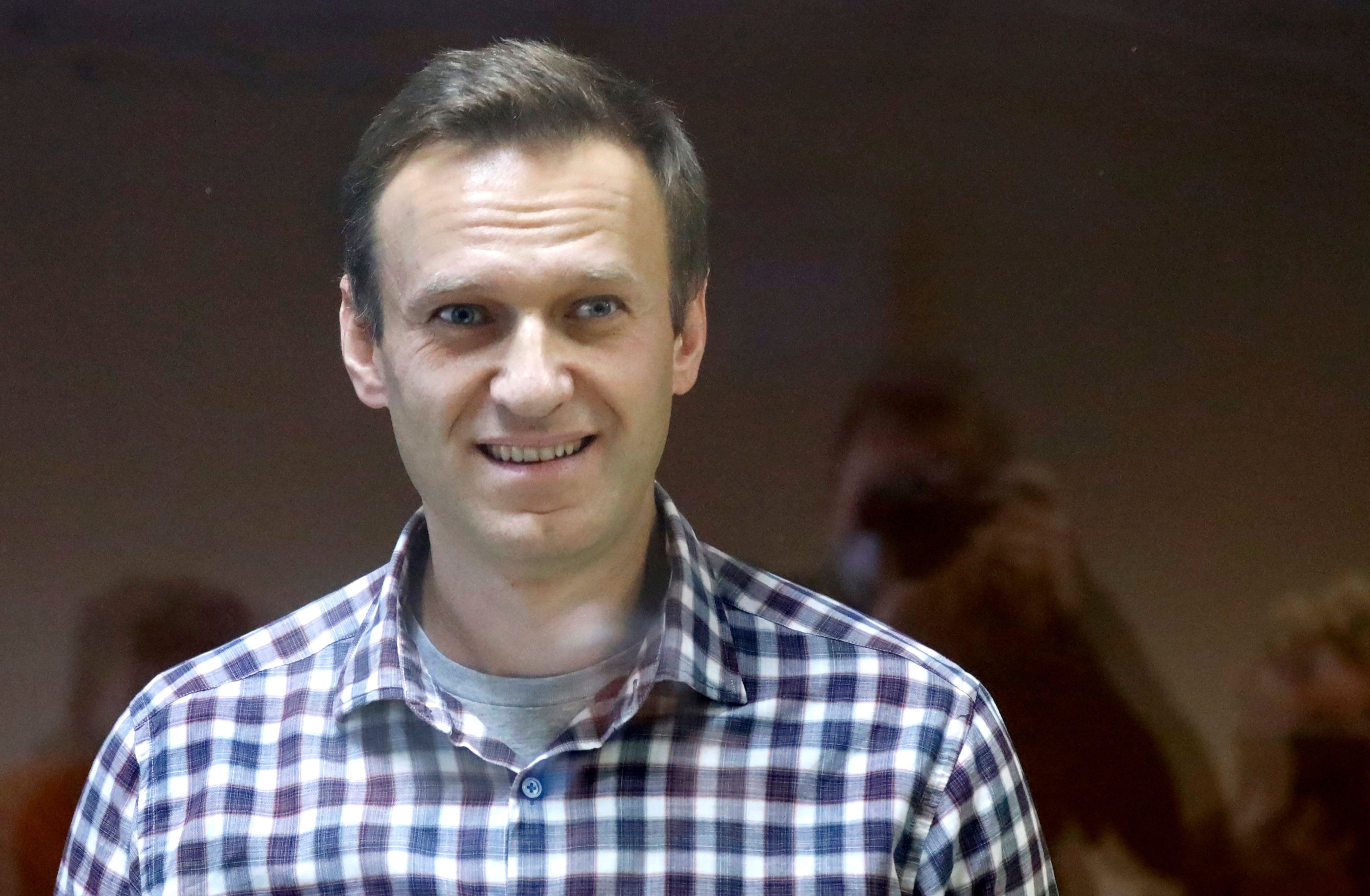Russia opposition leader Navalny's health worsens in prison
A lawyer for Alexei Navalny says the Russian opposition leader has suffered back pains and leg problems in prison, and that Navalny’s condition has deteriorated in recent days

Your support helps us to tell the story
From reproductive rights to climate change to Big Tech, The Independent is on the ground when the story is developing. Whether it's investigating the financials of Elon Musk's pro-Trump PAC or producing our latest documentary, 'The A Word', which shines a light on the American women fighting for reproductive rights, we know how important it is to parse out the facts from the messaging.
At such a critical moment in US history, we need reporters on the ground. Your donation allows us to keep sending journalists to speak to both sides of the story.
The Independent is trusted by Americans across the entire political spectrum. And unlike many other quality news outlets, we choose not to lock Americans out of our reporting and analysis with paywalls. We believe quality journalism should be available to everyone, paid for by those who can afford it.
Your support makes all the difference.Russian opposition leader Alexei Navalny has suffered back pains and leg problems in prison, his lawyer said Thursday.
The lawyer, Olga Volkova, said Navalny's condition has notably deteriorated in recent days.
“He's suffering strong pains in his back and his right leg. He's feeling numbness in his right lower leg,” Volkova said outside the prison in remarks carried by independent Dozhd TV. “His right leg is in terrible shape.”
The 44-year-old Navalny, who is President Vladimir Putin’s most outspoken opponent, was arrested on Jan. 17 upon his return from Germany where he spent five months recovering from a nerve-agent poisoning that he blames on the Kremlin. Russian authorities have rejected the accusation.
Volkova said Navalny was taken to a hospital outside prison on Wednesday for magnetic resonance tomography but wasn't given the results. She said Navalny has received pills and ointment for his pain, but prison authorities refused to accept medicines that lawyers brought to him.
Volkova said Navalny had experienced back pain for four weeks, but prison officials also would not permit a visit by his doctor. The lawyer argued that authorities should transfer Navalny to Moscow so he could get better treatment.
Earlier this month, Navalny was moved to a prison colony in Pokrov in the Vladimir region, 85 kilometers (53 miles) east of Moscow. The facility stands out among Russian penitentiaries for its particularly strict regime that includes routines like standing at attention for hours.
Russia's Federal Penitentiary Service said earlier Thursday that Navalny had undergone medical check-ups the previous day, describing his condition as “stable and satisfactory.”
Last month, Navalny was sentenced to 2 1/2 years in prison for violating the terms of his probation while convalescing in Germany. The sentence stems from a 2014 embezzlement conviction that Navalny has rejected as fabricated — and which the European Сourt of Human Rights has ruled to be unlawful.
Russian officials have rejected demands from the United States and the European Union to free Navalny and stop the crackdown on his supporters.